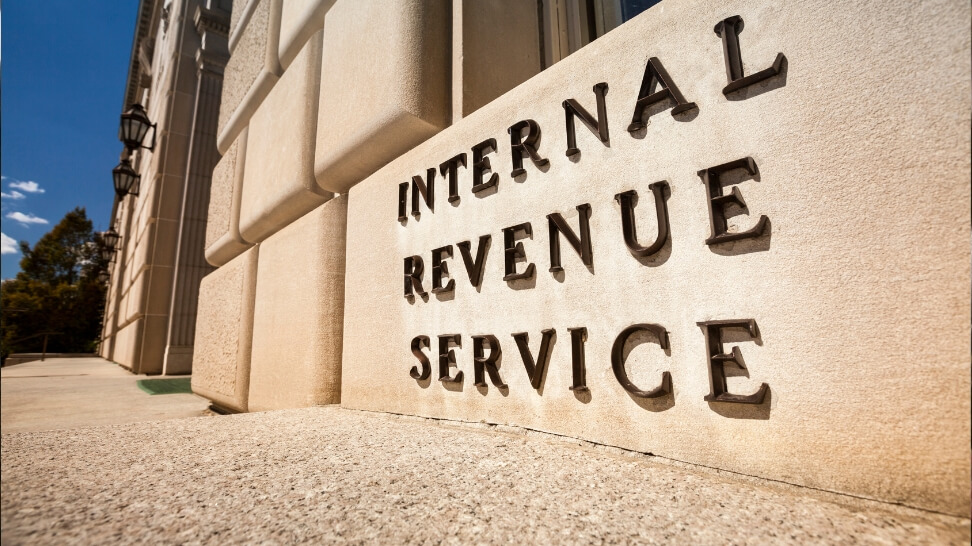Wealthy Americans have taken advantage of offshore trusts for decades. A recent IRS study found that about 60% of those who land in the top 0.01% in the United States in terms of wealth keep assets in foreign accounts.
If offshore trusts are good enough for these Americans, could you also benefit from them? Possibly. But before setting one up, learn about the potential drawbacks of offshore trust creation.
We’ve compiled a list of reasons you should not create an offshore trust. It showcases the biggest risks of establishing offshore trusts and can help you avoid the legal and financial pitfalls of creating offshore trusts to hold assets.
Discover more about the disadvantages of offshore trust setups below.
Illegitimate Reasons For Creating an Offshore Trust

Hollywood hasn’t done offshore trusts any favors when depicting them in movies. Films like 2019’s “The Laundromat” — which, to its credit, was based on real-life events discussed in the 2017 book, “Secrecy World,” about the Panama Papers scandal — have portrayed offshore trusts in a less-than-favorable light.
Because of this, some Americans are under the impression that many offshore trusts benefit those involved in nefarious activities. But this isn’t how these trusts are typically utilized.
If your goals are any of the following, then an offshore trust is probably not the best choice for you.t.
You Want To Protect Assets From the U.S. Government
In recent years, American politicians like Congressman Tim Walberg from Michigan and Congressman Jamie Raskin from Maryland have introduced bills like the Fifth Amendment Integrity Restoration (FAIR) Act. Their goal has been simple: To stop the federal government from using the country’s lax civil asset forfeiture laws to seize assets from Americans without due process.
The fate of the FAIR Act still hangs in the balance. But the fact it’s even up for discussion has caused some people in the U.S. to wonder whether they should look into opening offshore trusts to shield assets from the government.
The good news for those interested in starting offshore trusts is that they can protect your assets from creditor claims. But offshore trusts aren’t designed to shield against government scrutiny.
You Want To Avoid Reporting Income to the IRS

Wealthy Americans who take advantage of offshore trusts tend to open them in so-called “tax havens” like the Cayman Islands. In fact, a Tax Policy Center report discovered that about $2 trillion in American wealth sits in tax havens.
Some Americans believe offshore trusts can help them avoid reporting their incomes to the IRS. But this is yet another myth surrounding offshore trusts.
The IRS established the Foreign Account Tax Compliance Act (FATCA) in 2015. It calls for individuals holding assets in offshore accounts and foreign financial institutions to report the American account holder assets each year.
The IRS also requires Americans who start offshore trusts to fill out Form 3520 and Form 3520-A. They allow the IRS to closely monitor any offshore trusts that U.S. citizens operate in foreign jurisdictions.
You Want To Hide Illegal Activities From the World
The U.S. government, as well as other governments, has come down hard on those engaging in money laundering over the last half a century. America has introduced many anti-money laundering laws, including:
- Money Laundering Control Act (1986)
- Annunzio-Wylie Anti-Money Laundering Act (1992)
- Money Laundering Suppression Act (1994)
- Money Laundering and Financial Crimes Strategy Act (1998)
- USA Patriot Act (2001)
Despite this, there is still a belief that offshore trusts can help those who partake in money laundering and other financial crimes. This isn’t the case. The U.S. has created Anti-Money Laundering (AML) rules and Know Your Client (KYC) standards to stop criminals from using offshore trusts to mask illegal acts.
Legitimate Reasons You Should Not Create an Offshore Trust

After hearing about the illegitimate reasons for creating an offshore trust, you might already know that establishing one isn’t for you. The last thing you want to do is start an offshore trust to skirt your tax responsibilities or avoid punishment for illegal activities, only to learn this isn’t allowed.
There are also other legitimate reasons you should not create an offshore trust. Let’s look at them next.
You Don’t Want To Pay the Necessary Costs
Setting up an offshore trust requires a large investment. You’ll likely pay anywhere from $10,000 to $100,000 in legal fees to create your offshore trust.
You’ll also pay between $3,000 and $8,000 to the jurisdiction you choose for your offshore trust. There will be currency exchange fees, banking fees, and ongoing annual fees.
These fees might not work with your budget and could make setting up an offshore trust cost-prohibitive.
You Don’t Want To Trust a Foreign Jurisdiction or Trustee
Before creating an offshore trust, you’ll need to choose a foreign jurisdiction. The Cayman Islands is one option. Other good options include:
No matter which jurisdiction you select, starting an offshore trust requires you to trust it to keep your assets safe. Furthermore, you must appoint a foreign trustee to look after your offshore trust; not everyone will feel comfortable with this arrangement.
A 2021 Federal Deposit Insurance Corporation survey found that about 6 million American households don’t use U.S.-based banks. Roughly 13% of them report not using banks because they don’t trust them.
Many Americans have trouble trusting domestic banks, let alone foreign financial institutions. If you fall into this category, an offshore trust might not be right for you.
If you are creating an offshore trust, work with an experienced asset protection attorney who can help you select vetted and trusted offshore providers.
You Don’t Want To Lose Direct Control of Your Assets
Over half of Americans admit to losing sleep at night over money-related issues. If this sounds like you, imagine how much sleep you might lose if you find yourself in a position where you don’t feel like you have control over your money.
This could be the No. 1 reason you should decide not to create an offshore trust. Giving someone else control of your money might not sit well with you.
However, you can still have indirect control over your assets by directing your trustee through a request to take certain actions such as how your money is invested and when you receive distributions.
Reasons an Offshore Trust Might Be Right for You

We’ve spent a lot of time talking about the downsides of offshore trust formation. But there are also many reasons an offshore trust might be right for you. Learn more about these below.
Enhanced Control Over Assets
Initially, you might feel like you’re relinquishing too much control of your assets when you move them into an offshore trust. But you can exert more control over them when they’re kept in an offshore trust.
As long as you properly set up an offshore trust and find a trustworthy foreign trustee, you’ll feel an enhanced sense of control over your assets. You can decide when and where to move them based on your circumstances. You will also not have to worry about losing your assets due to a lawsuit.
Improved Access to Foreign Investments
You can keep varying types of assets in an offshore trust, including cash, bonds, cryptocurrency, real estate, and even stocks. You can also add foreign investments to an offshore trust and maintain more control over them.
You can make wiser investing decisions by securing better access to these foreign investments.
Unmatched Asset Protection
You’ve worked hard to get where you are today, so protecting your assets should be at the forefront of your mind as you accumulate wealth. Opening an offshore trust can provide the necessary offshore asset protection and minimize the legal risks associated with your assets.
Just be sure to work with a lawyer who understands how to use offshore trusts for asset protection to stay within the bounds of the legal system.
Easier Estate Planning

Almost 70% of Americans say estate planning is important. Only about one-fourth of them have gone through the process.
Setting up an offshore trust can make estate planning less stressful. You can bring together all your valuable assets in one place.
Better Creditor Deterrence
If you have creditors trying to track you down, keeping your assets in the U.S. can leave them susceptible to seizures. These creditors may secure judgments against you in court, allowing them to collect compensation by any means necessary.
You can deter creditors from coming after your assets with an offshore trust.
Advanced Protection From Family Disputes and Divorces
Setting up an offshore trust won’t just protect your assets from creditors. It can also protect from legal battles stemming from family disputes and divorces. Your offshore trust can keep your assets safe while the legal process plays out.
Contact Us To See Whether an Offshore Trust Would Be Right for You
After reading about why you should not create an offshore trust and then reading about why setting one up might be smart, you may not know where you stand on creating one. Blake Harris Law can help you determine whether an offshore trust could benefit you.
Contact us for more information on offshore trusts and asset protection.
